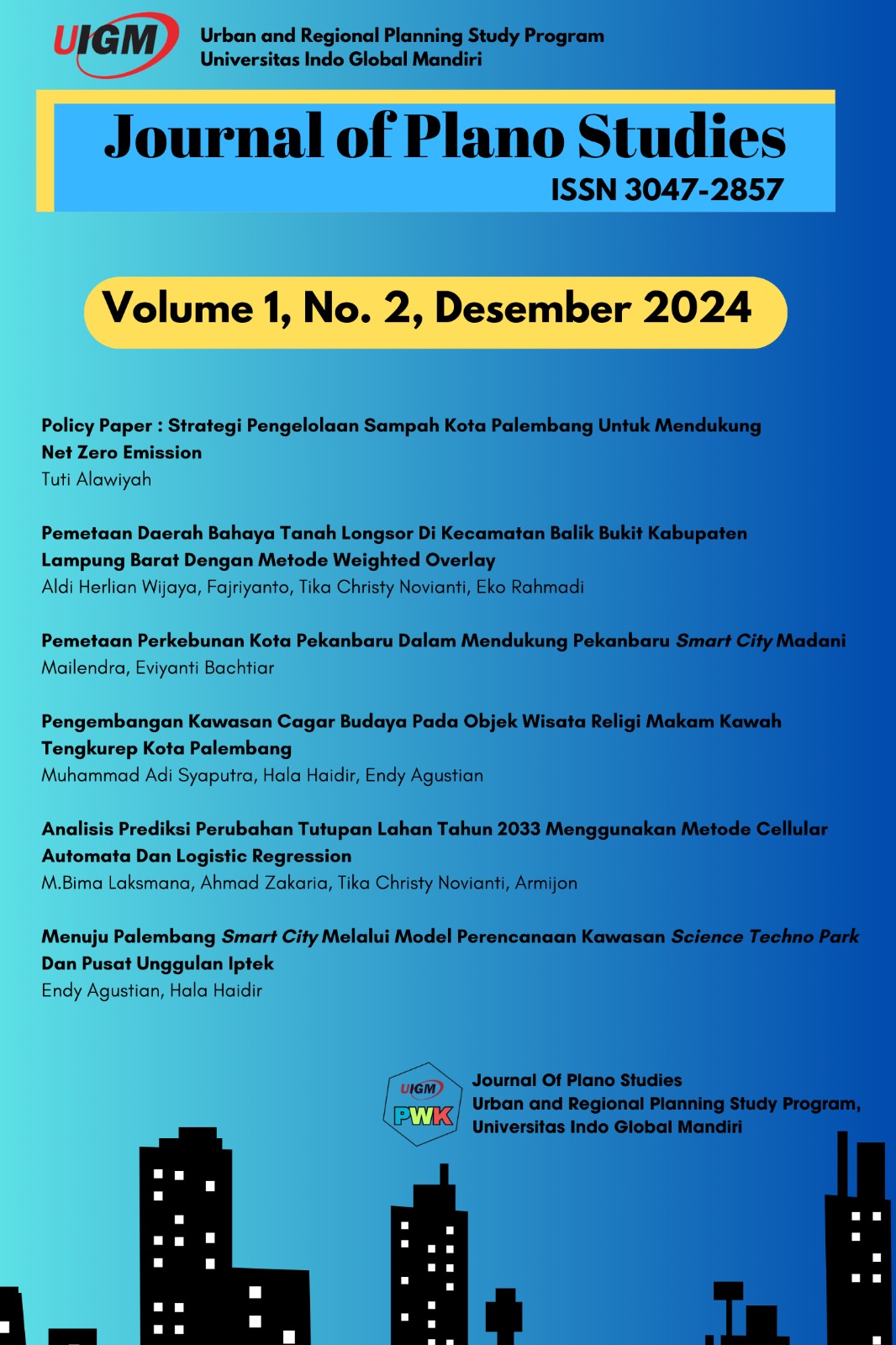STRATEGI PENGELOLAAN SAMPAH KOTA PALEMBANG UNTUK MENDUKUNG NET ZERO EMISSION
DOI:
https://doi.org/10.36982/jops.v1i2.4676Keywords:
Emisi GRK, Net Zero Emission, Strategi Pengelolaan Sampah KotaAbstract
The issue of climate change is a global concern, with a focus on reducing greenhouse gas (GHG) emissions. Indonesia, under the Paris Agreement, has set targets to reduce emissions by 29% independently and 41% with international support by 2030. At the local level, Palembang faces challenges in waste management, contributing to methane emissions, a GHG with 28 times the global warming potential of CO2. Although waste is not the largest source of emissions, Palembang, with over 1.6 million residents, must address this issue. This study analyzes GHG emission projections in Palembang’s waste management sector under different scenarios and offers policy recommendations for local authorities. Using the Intergovernmental Panel on Climate Change (IPCC) model, along with primary and secondary data, the results suggest that the most effective scenario for reducing emissions is a zero-landfill approach with full implementation of the 3R (Reduce, Reuse, Recycle) concept. Projections show that this scenario could reduce emissions by 64% by 2030 and 71% by 2045 compared to the baseline. Prioritizing waste management with the 3R concept and waste sorting at the source is essential to meet emission reduction goals. This paper also recommends integrating waste reduction targets into regional planning and assessing financial capacity to support thermal waste treatment technology as a sustainable urban waste management solution.
Downloads
Published
How to Cite
Issue
Section
License
Copyright (c) 2024 Tuti Alawiyah

This work is licensed under a Creative Commons Attribution-ShareAlike 4.0 International License.





